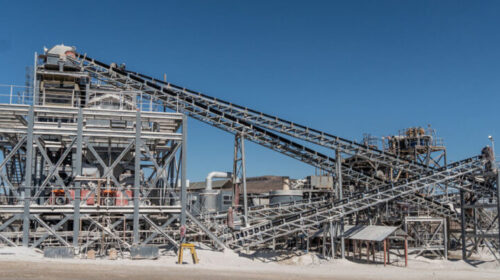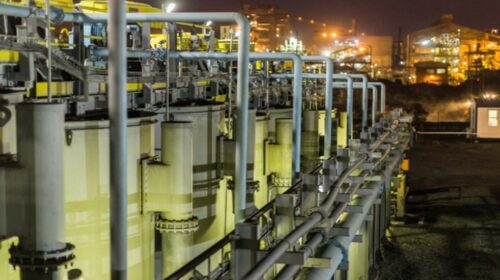GoviEx confirms the start of production of the Madaouela uranium mine for 2025 in Niger
In 2015, Niger granted a mining permit to GoviEx Uranium for the Madaouela project. 7 years later, the mine has still not entered into construction, in particular due to the low prices and demand observed in recent years. However, the trend has started to reverse.
In Niger, Madaouela is expected to go into production in 2025, subject to obtaining financing for the construction works. This was assured by the executive chairman of GoviEx Uranium, owner of the uranium project, on the occasion of the publication on Monday, September 20 of the feasibility study.
According to the results of this assessment, the construction of the mine will require an investment of $343 million. Once in production, Madaouela should deliver an average of 2.67 million pounds per year, for a total production of 50.8 million pounds of uranium over the life of the project (19 years).
“ The completion of our feasibility study represents another important step in the development of our company and its goal of becoming a significant uranium producer ,” commented Govind Friedland, Executive Chairman of the company.
Note that the annual EBITDA at Madaouela should amount to $82.6 million, compared to $70 million in the pre-feasibility study, for a total EBITDA of $1.57 billion over the life of the project. On the other hand, the net present value of the project has fallen since it is now $140 million with an internal rate of return of 13.3%, against $336 million and 23% previously.
As a reminder, the Madaouela uranium mining permit was issued in 2015 by the Nigerien authorities, who have since been waiting for the mine to start production in order to benefit from the share of revenue due to the State. If the weakness of world demand and prices have long justified the slowness in the development of the project, the situation has changed in recent months.
There is indeed a renewed interest in the production of nuclear energy in the world and several countries, in Africa, Asia or Europe, not forgetting the United States, plan to develop new nuclear power plants, in as part of their energy transition. These prospects are stimulating demand for uranium and prices are already rising in several markets.
105 total views , 1 views today





